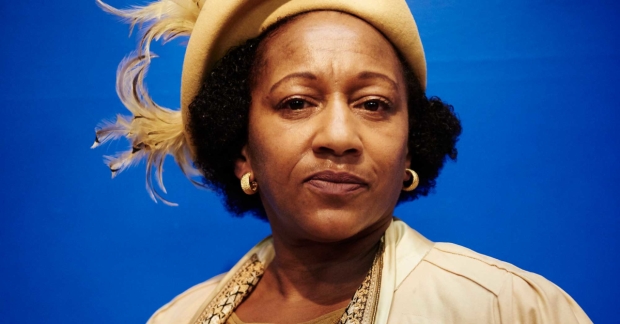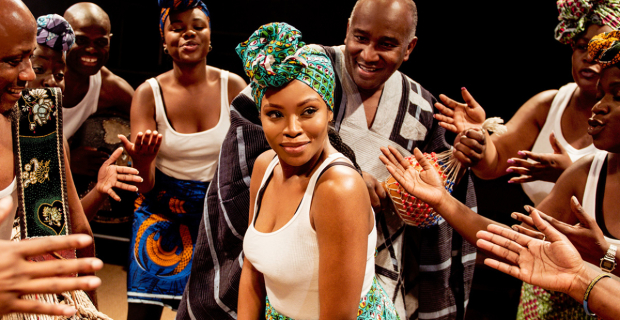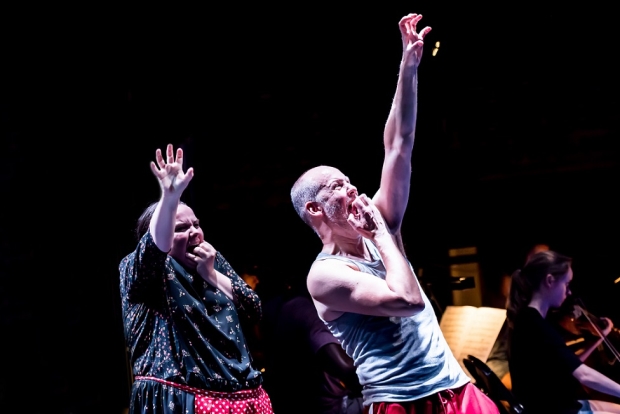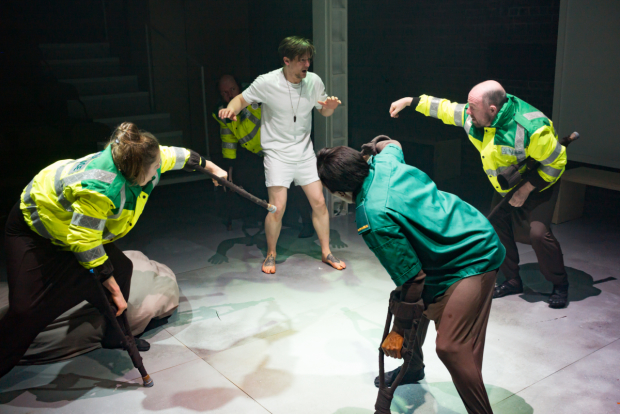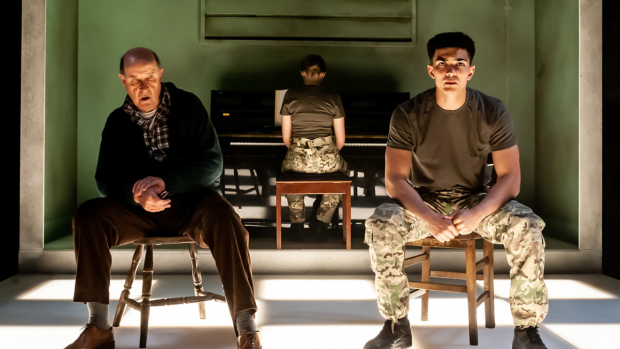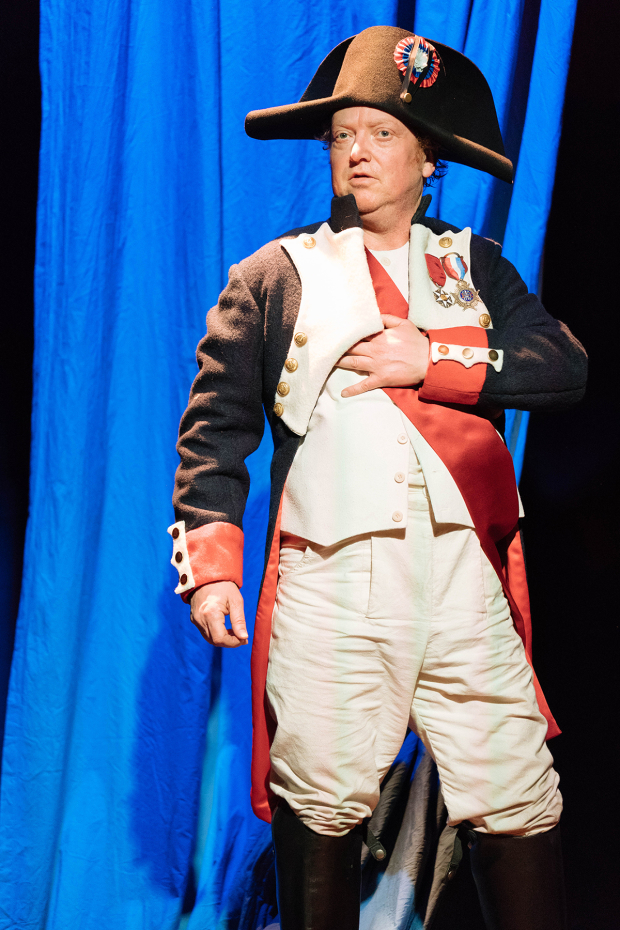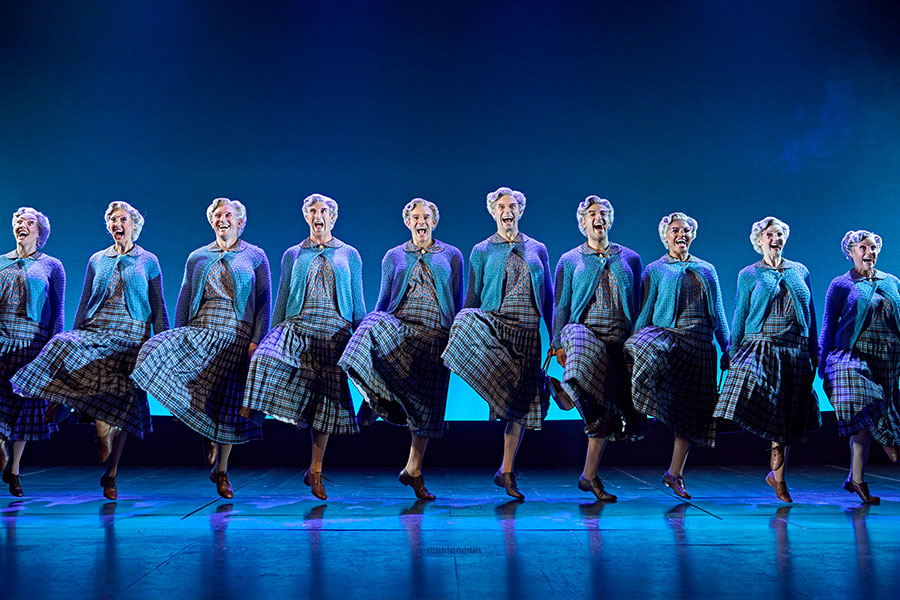Forgotten 遗忘 at the Arcola: the show based on an erased history
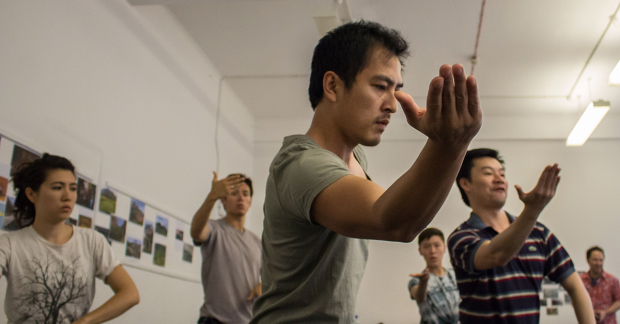
© Moongate and Yellow Earth
Our play is called Forgotten 遗忘. 遗忘 means "forgotten". "Left behind". "Erased".
Approximately 140,000 Chinese labourers worked for the British, French and American armies in the final stages of the First World War. A further approximately 200,000 worked for the Russians. They are the Forgotten. Literally airbrushed from history.
The labourers themselves were almost entirely dirt poor and mostly couldn't read or write. They worked ridiculously hard, helped massively to win a war that was nothing to do with them, then simply vanished into the mists of time. There was a giant mural created at the war's close, the Pantheon de la Guerre, to celebrate all the contributors to the war effort and the Chinese were literally painted out of it (replaced in the picture by Americans). At a time of colonial superiority, Chinese labourers merited little consideration-particularly when China as a nation was teetering on the brink of collapse, 71 per cent of its territory controlled by foreign powers and riddled with debt and internal strife.
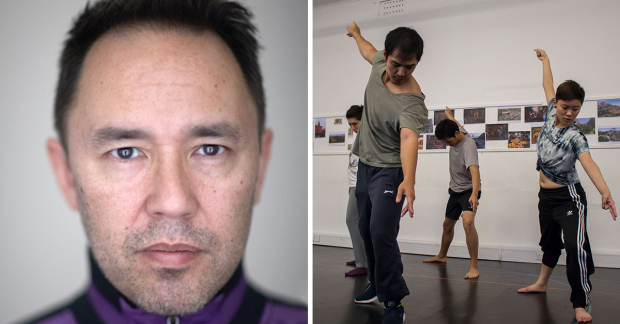
© Right: Matt Anker, right: Moonstone and Yellow Earth
In a war of logistics which was won, not by any great tactical flourishes, but by one side completely capitulating from exhaustion and a lack of manpower, 140,000 fit, able and extremely hardworking men represents a significant contribution. Members of the Chinese Labour Corps dug trenches, lifted, carried, and also worked on repairing and maintaining the tanks that so demoralised the German army.
As well as all this, as I researched further, I also learned that many of the labourers were incredibly artistic. They carried musical instruments with them, they told stories, they sang songs, they performed for each other and their white officers, they made trinkets for sale, they painted wall and ceiling frescoes, they made engravings on bomb-shells. Only the other week Antiques Roadshow featured an elaborate and strikingly intricate folding painting which some labourers had presented to British officers.
Our play is about East Asian people who fight to leave their story behind
The characters in our play are an amateur Chinese theatre troupe. It often seems that we're brought up with the idea that arts and culture are the preserve of rich educated people. But arts and stories belong as much, if not more, to less privileged people. Because art redeems us. All too often East Asians are regarded as silent workhorses with no emotions, no aspirations, no hopes, no dreams, no inner life at all. Our play is about East Asian people who fight to leave their story behind.
But everything is seemingly combining for their story to be lost.
We hope you can come and experience just one iteration of the story of the World War One Chinese Labour Corps.



